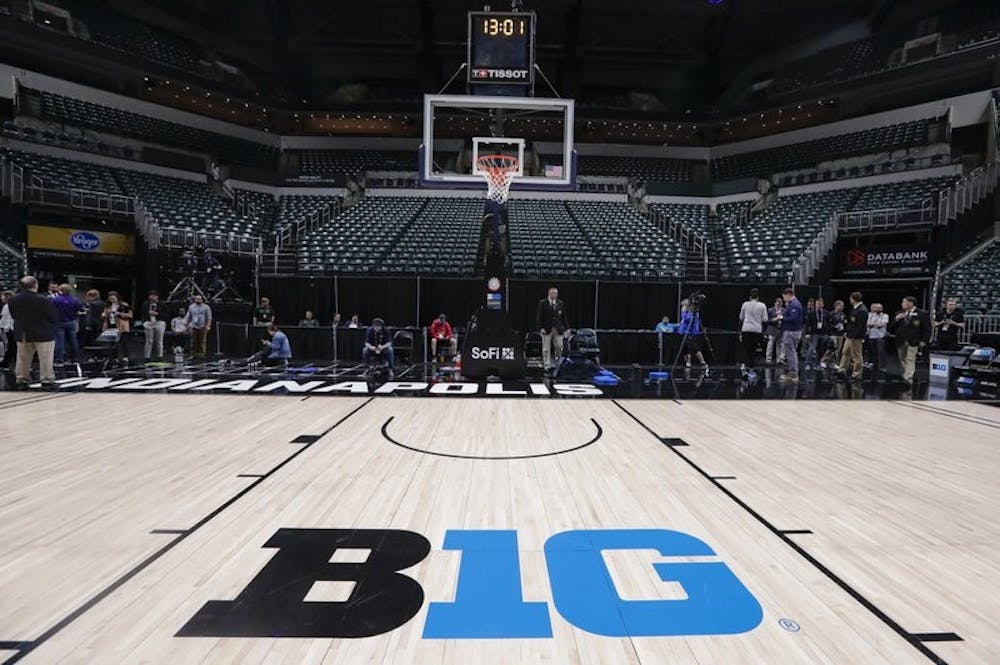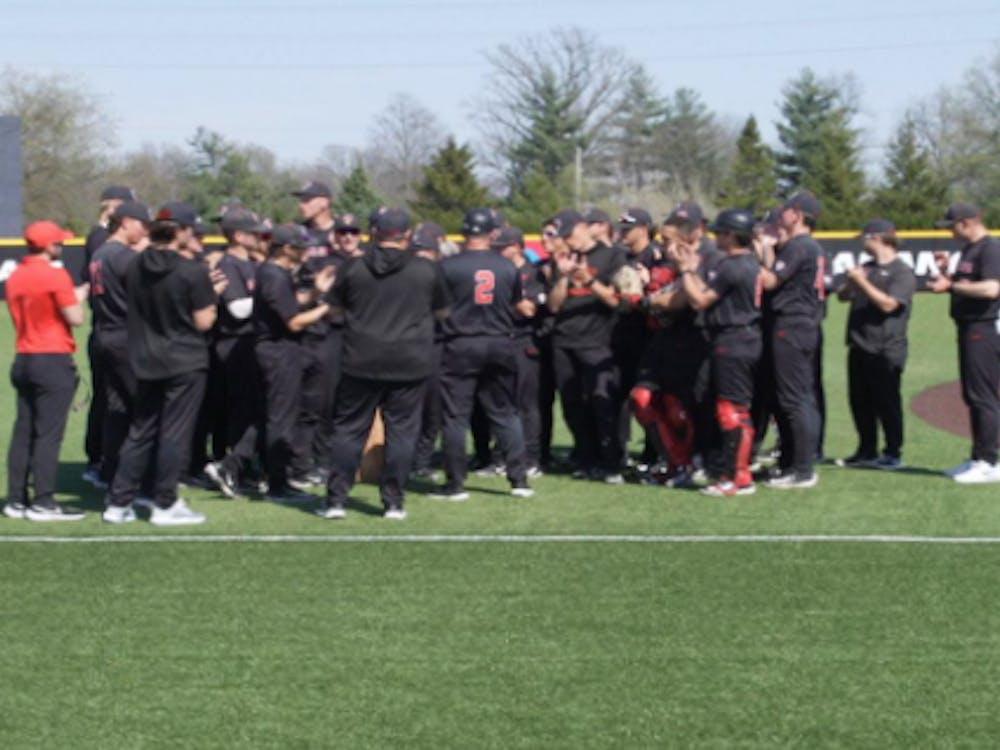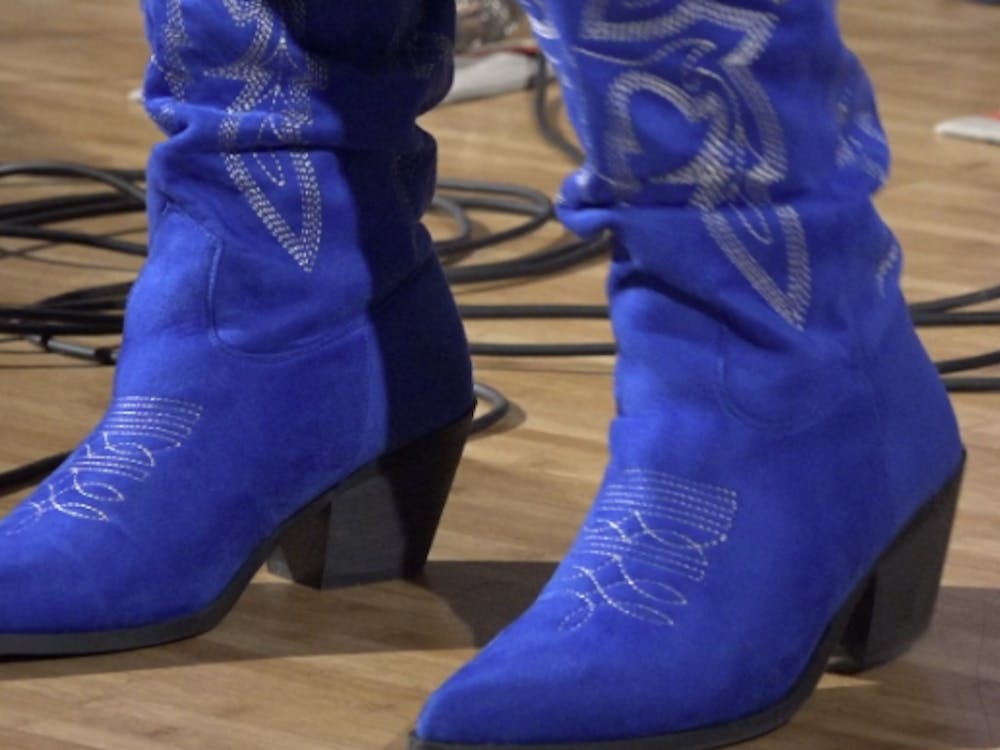Evan Weaver is a senior journalism news major and writes columns for The Daily News. His views do not necessarily reflect those of the newspaper.
March has a very dear place in my heart for many reasons. It means the return of the Shamrock Shake at McDonald’s, my half-birthday and my favorite season is only a few short weeks away.
Most importantly, it means March Madness.
My favorite part of March Madness is when the mighty Goliath falls to David. Who didn’t love that underdog story three years ago when Loyola Chicago, with the spiritual guidance of Sister Jean, made it to the Final Four? Who wasn’t a Florida Gulf Coast fan when it became the first No. 15 seed to make it to the Sweet 16 in 2013? Who could forget when Butler stole the hearts of thousands of fans when it rode its Cinderella story to the championship game in 2010 and 2011?
There’s one thing all three of these schools have in common: They all earned their spot in the NCAA Tournament because they won their conference tournaments.
So, when I hear talk of teams potentially opting out of their conference tournaments this year due to COVID-19 concerns if they consider themselves a lock for March Madness, I am left annoyed and confused. There are a few schools, such as Brigham Young and No. 1 Gonzaga of the West Coast Conference, that are considering opting out of their tournaments because they are already almost guaranteed an at-large bid.
Louisville head coach Chris Mack said he would consider opting his team out of the Atlantic Coast Conference Tournament if it was considered a lock. On the other hand, Florida State head coach Leonard Hamilton — whose team is currently first in the ACC — said in an interview, “I don’t see any more of a risk playing in the ACC Tournament than now.”
I’m not a fan of the Seminoles, but I am a huge fan of Hamilton’s philosophy.
If teams are so worried about endangering their road to March Madness because of a one-week tournament to secure their spot in the competition — and perhaps earn themselves a better seed — maybe they should have opted out of their season entirely.
Brigham Young is the only school in the WCC that has not had its season paused by COVID-19, dating back to when the season started in late November. It did cancel and postpone some games due to other programs having to pause, but the Cougars never had a single case within their program all season.

In the first two rounds of March Madness, there have been a total of 11 upsets causing a lot of busted brackets. Madeline Grosh, DN
So, where do the concerns come from all of a sudden?
If a team is doing everything it can to stay safe, there shouldn’t be a concern because all players risked their health for the past three months. There is no reason why one extra week of basketball should cause greater concern.
Between attending practices and classes and hanging out with friends, players risk their health every day. Because of these other variables, exposure at a conference tournament is not as risky as teams make it seem.
If teams considered locks for March Madness opt out, it is unfair to teams that have to play in their tournaments or rely on the selection committee just to make the big dance. Teams that would most likely win their conference tournaments and earn an automatic bid would instead receive at-large bids that diminish the number of bids available to teams on the bubble.
Suppose teams like Gonzaga, Michigan or Baylor — schools expected to win their conference tournaments — opt out. In that case, fewer at-large bids will be available to schools in conferences that usually only receive a couple of bids.
In the Mid-American Conference, four teams — Toledo, Akron, Kent State and Ohio — all have six losses. The MAC is a Group of Five conference, which typically means only the conference tournament champion receives a bid to the madness because Power Five conferences often receive the most love from the committee.
In 2019, Power Five conferences received 31 total bids — five automatically given to the tournament champion and 26 given as at-large bids. The remaining 12 conferences received 33 total bids — 12 automatic bids and 21 at-large.
Let’s say Toledo wins the MAC Tournament this year. You can’t tell me Akron, Kent State and Ohio are any less deserving of an at-large bid than Pepperdine, a team that would only advance to March Madness from winning its conference tournament due to Gonzaga and BYU skipping out on their conference tournament.
Of course, health and safety are of the utmost importance for student-athletes during the era of COVID-19. However, there’s no reason for coaches to sit their players out of conference tournaments for health reasons if they have already played a full season.
If the NCAA allows teams to opt out of their conference tournaments because of health reasons and then allow them to play in the NCAA Tournament, there might as well not be an NCAA Tournament at all.
Contact Evan Weaver with comments at erweaver@bsu.edu or on Twitter @evan_weaver7.





